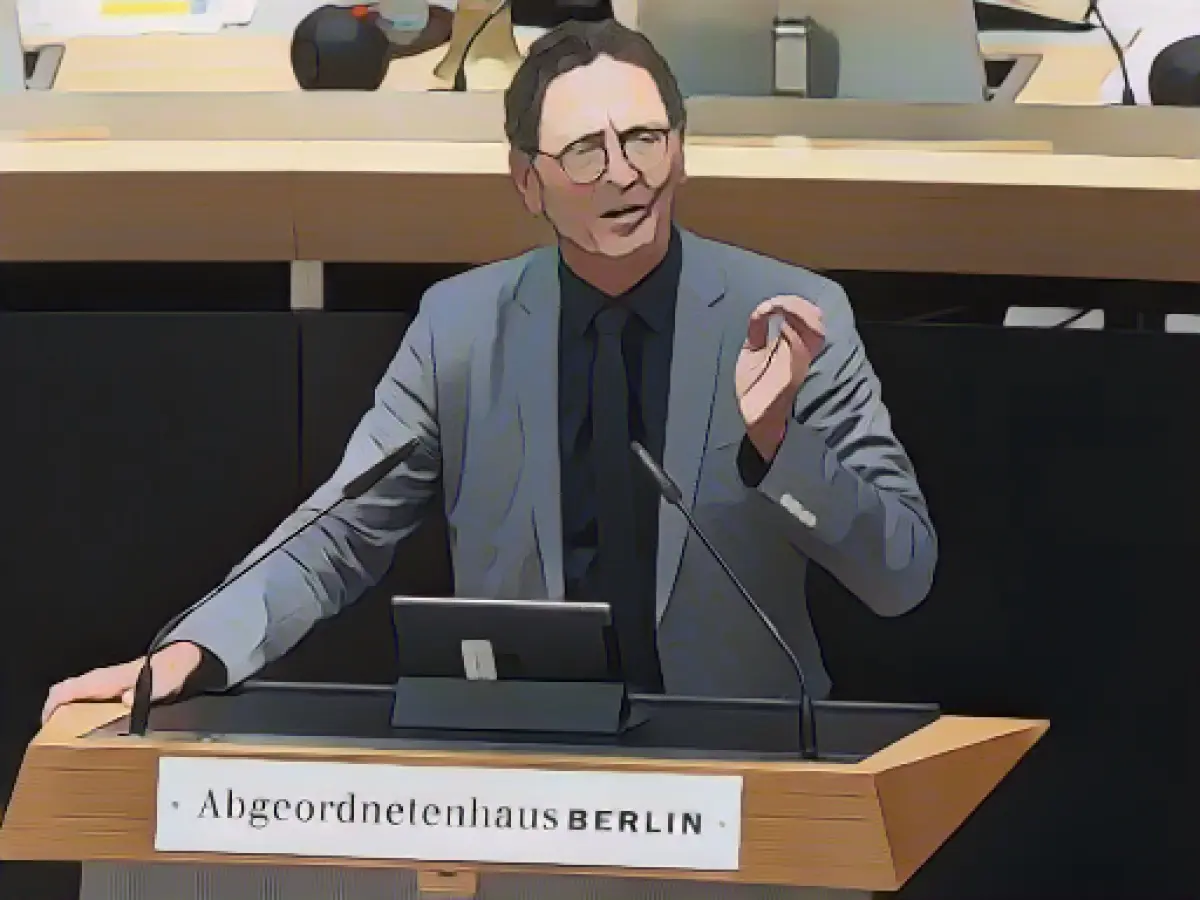Berlin and Brandenburg pushing for swifter construction amid housing crunch
As the tight housing market in the capital and its surroundings persists, Berlin and Brandenburg are banking on expediting their planned faster construction initiatives. Berlin's construction senator Christian Gäbel (SPD) emphasized that legislative actions and collaboration with Brandenburg are high on the agenda. At the Berlin-Brandenburg Parliamentary Conference, he underscored their commitment to swift action.
A week prior, the heads of government of the federal states along with Chancellor Olaf Scholz (SPD) endorsed an acceleration pact aimed at quickening the construction of apartments, renewable energy infrastructure, transmission lines, and railways. The states of Berlin and Brandenburg had advocated for such an agreement earlier.
Gäbel is hopeful that the federal government's plans to augment simplified construction of refugee accommodations can significantly impact the entire housing sector. He expressed optimism, stating, "Such a development would represent a substantial improvement." This would pave the way for speedier and more straightforward construction to respond to the tight housing market.
The Berlin-Brandenburg Parliamentary Conference, initiated in 2022 by the Brandenburg state parliament and Berlin House of Representatives, aims to foster cooperation at parliamentary levels between the two states. Participating legislators share their thoughts on various topics, which are then submitted to their respective committees.
Berlin and Brandenburg are actively lobbying for the swift implementation of their fast-track construction strategies, which directly impact their housing policies. Gäbel, as Berlin's construction senator, expressed confidence that leveraging federal government plans to enhance refugee accommodation construction could potentially bolster the entire housing sector, thereby contributing to tackling the current supply shortage.
Enrichment Insights
To tackle housing construction delays and alleviate the tight market, several strategies can be employed:
- Seamless Planning and Zoning Regulations: By leveraging loop holes in the federal Refugee Building Law, existing modular housing for refugees in Berlin can act as a model for streamlining planning, zoning, and building procedures for other projects.
- Innovative Use of Sustainable Raw Materials: The Fraunhofer WKI encourages the adoption of renewable raw materials such as wood in construction, supported by optimization of timber-concrete composite elements (TCC elements) and standardized manufacture for efficient construction site usage.
- Public-Private Partnerships: Collaborations with private developers and investors can speed up construction projects by offering incentives like tax breaks or subsidies for green materials and sustainable practices.
- Federal Subsidies and Financial Incentives: Subsidies from the federal government, like those for low-carbon heating systems, could be extended to housing development projects that employ eco-friendly materials and techniques, encouraging quicker construction.
- Urban Planning and Land Use Optimization: Berlin can maximize land use by identifying and repurposing underutilized spaces for housing development, adding to the overall housing stock without encroaching on existing areas.
- Sustainable Resource Cycles: The Fraunhofer WKI is also developing sustainable concrete construction materials and high-performance construction elements based on waste from construction and demolition, reducing raw material dependency and promoting efficient resource cycles.
The federal government's plans for simplified refugee accommodation construction have potential to influence the housing market in several ways, such as:
- Supply of Affordable Housing: Simplified construction of refugee accommodations could yield a larger number of affordable housing units, addressing the housing shortage in Berlin and Brandenburg. These apartments can subsequently be repurposed for low-income residents.
- Economic Stimulus: Construction activities for refugee accommodations can create jobs and stimulate regional economies, positively impacting the overall housing market supply and demand.
- Integration and Social Cohesion: By providing stable living accommodations and fostering integration among refugees, the federal government's initiative can contribute to better social cohesion, stabilizing the overall housing market.








